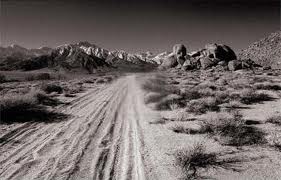I keep waiting for crazy controversial stuff. If this book is as controversial as some evangelicals claim it is, if pastors get fired because they endorse this book, then I guess I just don't see it. Maybe I'm too simple or maybe I'm too naive. Maybe I'm just not a good evangelical. Honestly, I'm wondering when we get to the part that makes me go "oh, that's why Rob Bell has incited so much vitriol from the religious right" but if so, then it must be somewhere else in this book.
In Chapter 3, Rob's chapter on hell, Bell writes "there is a hell now and a hell later. Jesus teaches us to take both seriously" (79). Then he goes on to talk about what hell here on earth looks like (Rwanda genocide, rape, environmental disasters). Basically Rob suggests that the consequences of sin and of wrong choices can land us in our own 'hell on earth' so to speak. He even suggests that God allows this to happen for our own good. Rob writes "sometimes God lets people “go” so that they can experience the full misery of the consequences of their actions and realize they need God" (90). Totally agree. If my life is any indication of this, then God does let us go our own way sometimes until we end up in a place where we realize we are living in hellish conditions and we need something better.
When Rob turns to the concept of a future-hell at the end of the age, he is cautious. He suggests that the Old Testament writers had no clearly defined concept of hell or what happens after death. He also suggests that when Jesus talked about hell in parables, the point of the story wasn't hell as a literal place, but rather the consequences of a sinful heart. Rob suggests that the parable of the rich man and Lazarus isn’t about hell; it’s about a social revolution, about a change of heart (75).
Rob writes "the rich man is alive in death, but in profound torment, because he’s living with the realities of not properly dying the kind of death that actually leads a person into the only kind of life that’s worth living" (77). I want to like this sentence, I want to like this sentiment, but somehow it promises more than it delivers and I don’t know why. Maybe I just need to re-read it a few more times.
Finally, Rob makes what might be his most difficult point for an evangelical to swallow when he writes "we are handed over to punishment in order for God, through the punishment or the punisher, to do something redemptive and renewing in our lives" (89). This makes me ask if Rob is suggesting that hell is some sort of neo-purgatory where we go until we are sufficently renewed or redeemed and ready to enter the age to come. I don't know if this is the point of Rob's comment, but I do know that Jesus often talks about "refining fire" and gold "purified in the fire" and Paul talks about trials and suffering making us stronger. I understand that as it relates to my life here and now. I'm not sure if I understand how a future "hell" might accomplish the same purpose, but then again, I'm still reading and still processing.
I'm waiting for controversy and all I get are questions. Questions that make me think. While I'm waiting, in the mean time, I'll keep on reading.
